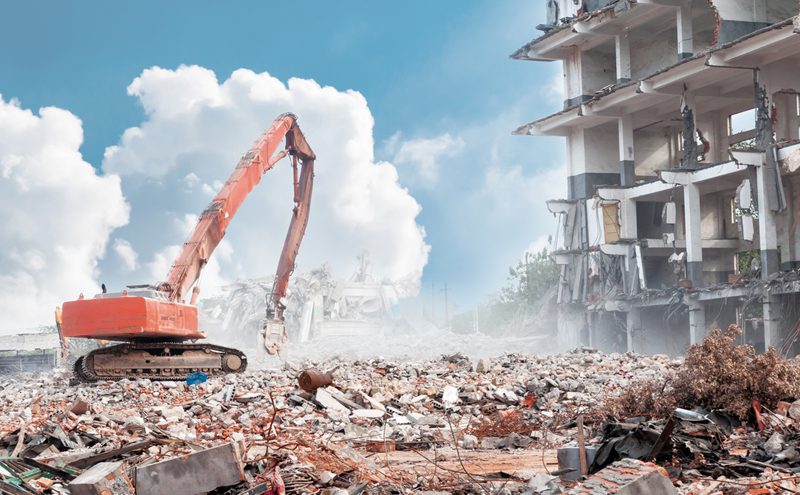
The joint European project PROGRESS, which is being led by VTT Technical Research Centre of Finland, is developing new utilization models based on the circular economy. The aim is to increase the recovery and reuse of steel components from demolished buildings, which can be used in the new construction projects. The EU is contributing EUR 1 million in funding to the project.
The construction and demolition sector creates Europe’s largest waste flow and new measures are needed to increase the reuse and recovery of wastes. In order to achieve this, it will be increasingly important to understand at the design stage how to deconstruct buildings to enable the use of their durable components in new applications.
Due to begin in June, the PROGRESS project will develop new design tools, methods and recommendations with focus on the economic and environmental aspects. The goal is to increase the amount of reused steel components in buildings by assisting the demolition and planning of steel structures with the aim of decrease virgin raw material use. Hence, energy use in manufacturing of new building structures can be reduced. In addition, existing opportunities and obstacles of reusing components will be identified.
The results will benefit the entire construction industry, manufacturers, designers and contractors. New business opportunities are foreseen as recycled components and raw materials become an increasingly easy and cost-efficient option for the entire construction sector value chain. The environmental load, material costs and energy consumption will be reduced at the same time.
As an initial step the PROGRESS project will focus on single-storey steel buildings, a large number of which are used by the industrial, retail, warehousing, sports and exhibition sectors.
The project, which will start in June 2017 and continue until May 2020, has a budget of EUR 1.6 million, EUR 1 million of which is being contributed by the EU. The project is led by VTT from Finland. The project partners are Ruukki Construction (Finland), Steel Construction Institute (United Kingdom), the RWTH Aachen University and Paul Kamrath Ingenieurrückbau (Germany), Universitatea Politehnica Timişoara (Romania) and ECCS, European Convention for Constructional Steelwork (Belgium).







